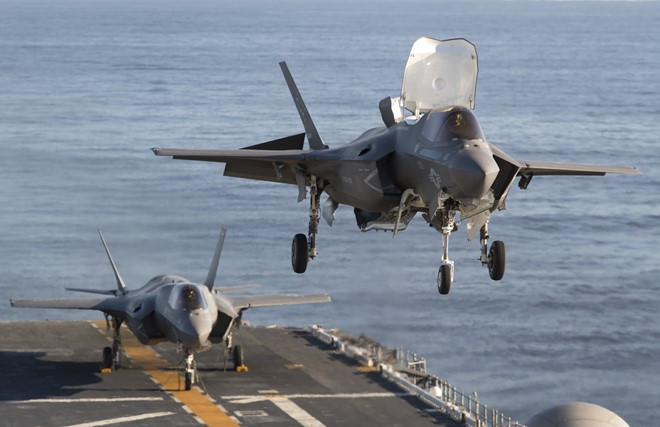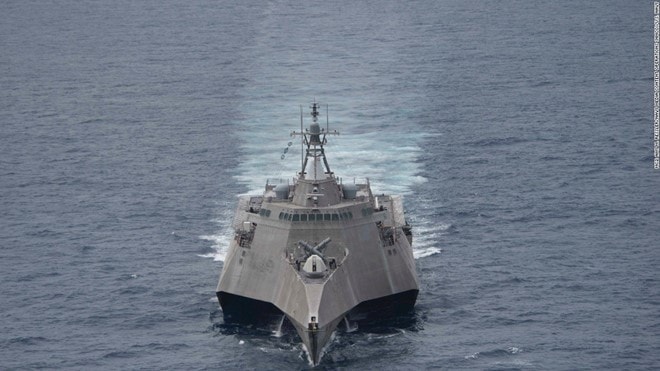Increasing the defense budget does not make America safer
A former US senator said the Pentagon has too many opaque weapons programs, so increasing the defense budget does not make America safer.
» Priest Nguyen Dinh Thuc incited parishioners
US officials said President Donald Trump directed the development of a budget plan for the next fiscal year, focusing on a sharp increase in the defense budget and cuts in domestic agencies, an action to concretize Mr. Trump's previous commitment during the election process.
Is more money safer?
On February 27, President Trump signed an executive order that could lead to increased defense spending, even though the Pentagon has not fully accounted for the costs and has never been subject to an independent audit.
But the final decision will be up to Congress. After decades of questionable financial management, Congress should exercise its oversight power by requiring a full audit of the Pentagon’s finances before considering any budget increase.
 |
| The F-35 Joint Strike Fighter, the Pentagon's "big money, big name" weapons development program. Photo: US Navy |
Assessing President Trump's proposed defense budget increase, former Senator John Tierney, now executive director of the Washington DC-based Center for Arms Control and Non-Proliferation, said that American taxpayers give money to the Pentagon without knowing exactly what they do with it.
Meanwhile, billions of dollars are wasted each year without making Americans safer. It seems that Washington has the mindset that “more money will make us safer.” When the idea is “spending smarter will make us safer.”
Increasing the Pentagon budget without accountability for funding would reduce the efficiency of government spending without improving national security.
Many programs are wasteful.
President Trump has criticized the F-35 Joint Strike Fighter program, estimating that the program is $160 billion over budget and five years behind schedule.
Following Trump’s criticism, Lockheed Martin, the manufacturer of the F-35, pledged to reduce its latest F-35 purchase plan by $700 million. However, financial experts say Lockheed Martin’s reduction represents just 0.07% of the $1 trillion cost of the aircraft’s expected lifetime.
Another prime example of waste is the Littoral Combat Ship (LCS) program. The $29 billion program has been plagued by major development flaws. The LCS is also behind schedule, not fully combat-ready, and faces bipartisan skepticism.
 |
| The LCS littoral combat ship program has been criticized for being wasteful and lacking in combat capabilities. Photo: CNN |
The Pentagon’s mismanagement and programs are just the tip of the iceberg of fiscal irresponsibility. The Pentagon maintains the largest budget of any federal agency but has never been subject to an independent audit.
The Pentagon's budget management problems are getting very serious. The Pentagon's Office of Inspector General blames the Army for balancing its books incorrectly to cover $6.5 billion in illegal expenses in 2015.
In December 2016, the Washington Post reported that the Pentagon had deliberately hidden a report from the Defense Business Council (an independent advisory group to the Pentagon) that called for $125 billion in savings over five years without having to lay off any employees.
Mr. Tierney argued that good financial management would prevent purchases until development was complete and the weapons were proven to be successful in a real combat environment. Mr. Tierney stressed that the Pentagon's financial management was inefficient, irresponsible and would never be tolerated in a corporate boardroom.
President Trump’s criticism of wasteful Pentagon programs is a positive step. However, his proposal to increase the defense budget without conditions attached only increases the federal debt without improving national security.
The former senator concluded that until the Pentagon proves it is accountable to taxpayers, the proposed defense budget increase should be blocked by Congress.
According to Zing
| RELATED NEWS |
|---|

